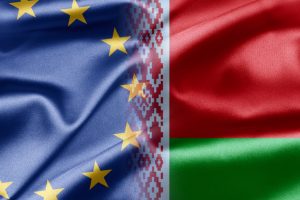The Moldovan agricultural exports to the European Union market increased by 500 million euros in two years, following the implementation of phytosanitary measures under the DCFTA, the Expert-Grup centre said.
According to experts, four years ago when the agreement was signed, except for honey, domestic producers did not export agricultural products to the EU, due to customs duties, incompatibility of national regulations with European rules, outdated production technology. With the signing of the Association Agreement and setting up of the Deep and Comprehensive Free Trade Area, Moldova “has engaged in an unprecedented economic restructuring process”.
The removal of tariff barriers, after signing the DCFTA, for 91 percent of domestic products has led to saving over 11.2 million euros a year for farmers. Legislation on sanitary and phytosanitary measures and animal welfare has been adjusted to the European one, half of the total commitment from DCFTA for agriculture refers to phytosanitary measures.
Expert-Grup also says that incentives have been created to modernize the agricultural sector by increasing access to finance, education and promotion of the association of agricultural producers, including by facilitating investment in quality infrastructure.
The financing of the implementation measures of the Association Agreement in the agricultural sector was carried out through several financing programs and firstly the single framework for Moldovan agriculture, which provided 110-123 million euros.
The Republic of Moldova exports sunflower, wheat, maize, non-denatured ethyl alcohol, grapes, fruits and other products to the EU market.
According to experts, 482 EU standards have been adopted in four years, 523 GOSTs have been canceled, four national laboratories have been renovated and accredited, 4 of the 12 authorized laboratories of the border points were renovated.
Following the creation of the Deep and Comprehensive Free Trade Area with the EU, its share increased from 61.9 percent in 2015 to 68.8 percent in 2018, according to data of the National Statistics Bureau.




